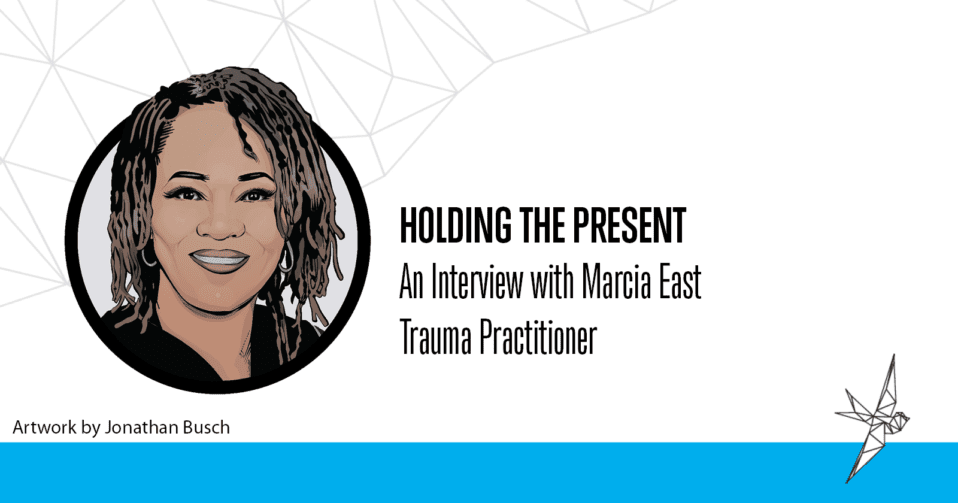Marcia trained as a psychotherapist with over 20 years’ experience working with youth and their families, five years of which has been spent in Edmonton working with youth who are homeless. She is motivated by her love for youth and seeks to find ways in joining them on their journeys in pursuit of healing. Her strengths include the ability to bear witness to the experience of others, facilitate containment of others, and collaborate with others in the exploration of their strengths.
YESS has made trauma-informed care a focus in all programs. Can you speak to how this has impacted the youth experience at YESS, and how this focus has evolved in the years that you have worked at YESS?
Trauma-informed practice speaks to the integration and understanding of past and current experiences of trauma into all aspects of the work we do for the populations that we serve. Our staff at YESS receive trauma-informed care training and are therefore aware of the high prevalence of trauma in our society and the wide range of responses, effects, and adaptations that people make to cope with their trauma. As we continue to mediate these experiences of our youth through our relationship-building, creating connections, and facilitating healthy attachments, there continues to be a rise in youth safety levels, as is demonstrated in increased access our services, ease in inhabiting our spaces, and opening up and connecting with staff.
How does access to therapy and trauma-informed support impact youth in their current circumstances as well as into their futures?
Therapy sessions utilise a strength-based approach, helping youth discover their authentic selves, their abilities, and resources, and employ them to build and improve their coping strategies so they can better respond to cues and emotions associated with traumatic events. Therapy also provides an opportunity for youth to explore their thoughts, feelings, and patterns of behavior, and learn new coping techniques to better manage the daily stressors and symptoms they experience. Some of these skills include relaxation strategies, self-regulation, and anxiety management. Trauma-informed support emphasises working collaboratively to deliver optimum services, as well as offering chances for choice in programs, which promote empowerment, and the prospect for healthy attachment. The trauma-informed support we provide at YESS also promotes resiliency building, as we seek to improve the protective factors in the lives of our youth.
How does the ever-widening conversation of mental health affect the youth as well as the community?
The consequences of not addressing adolescent mental health conditions extend to adulthood, impairing both physical and mental health and limiting opportunities to lead fulfilling lives as adults. We are then called upon to be aware of and facilitate the experiences that contribute to good mental health in youth. Factors such as a strong sense of safety in community; high self-esteem, self-efficacy, and positive sense of self-worth; and connection to spiritual or cultural beliefs, goals, or dreams provide meaning and purpose youths’ lives.


Post a comment